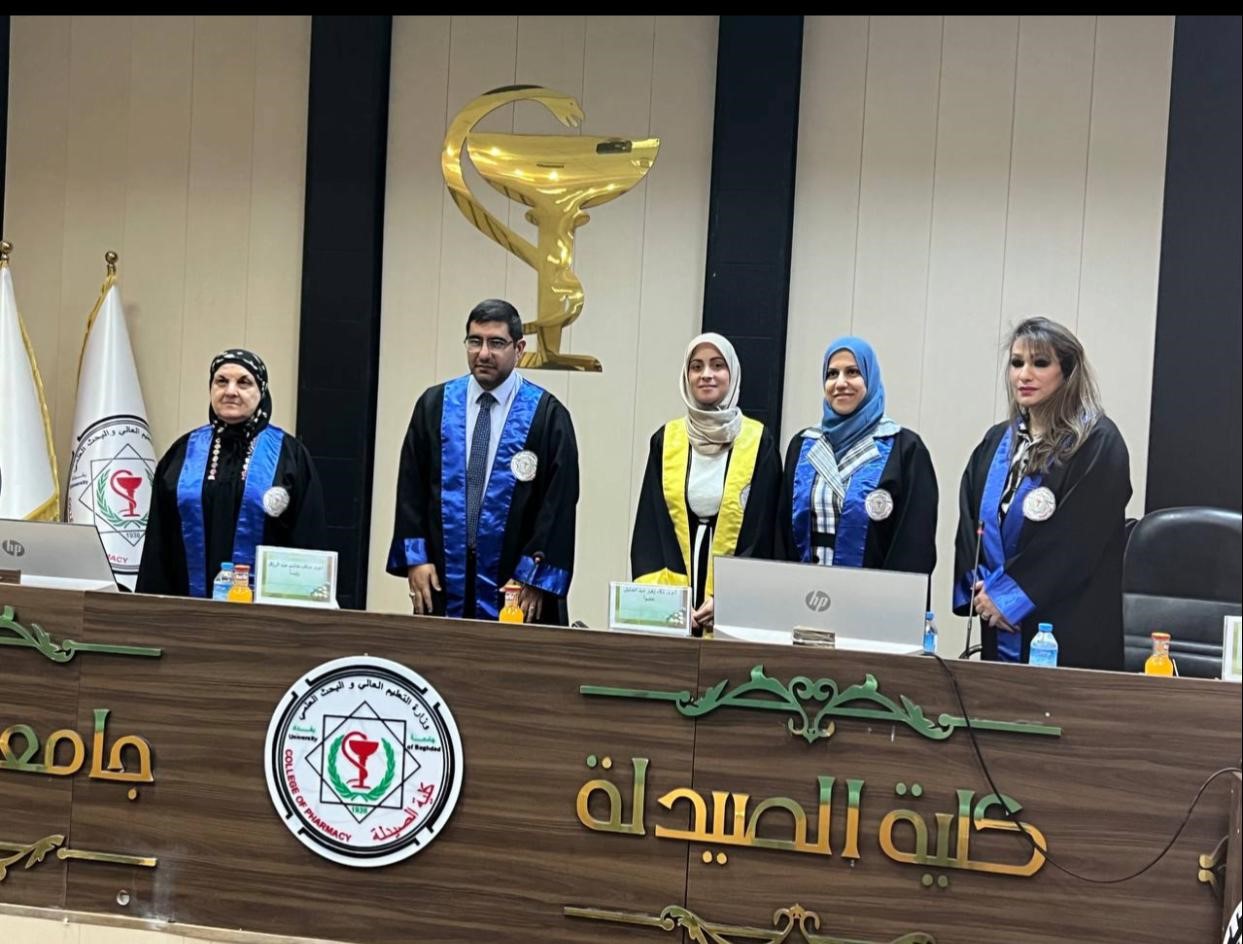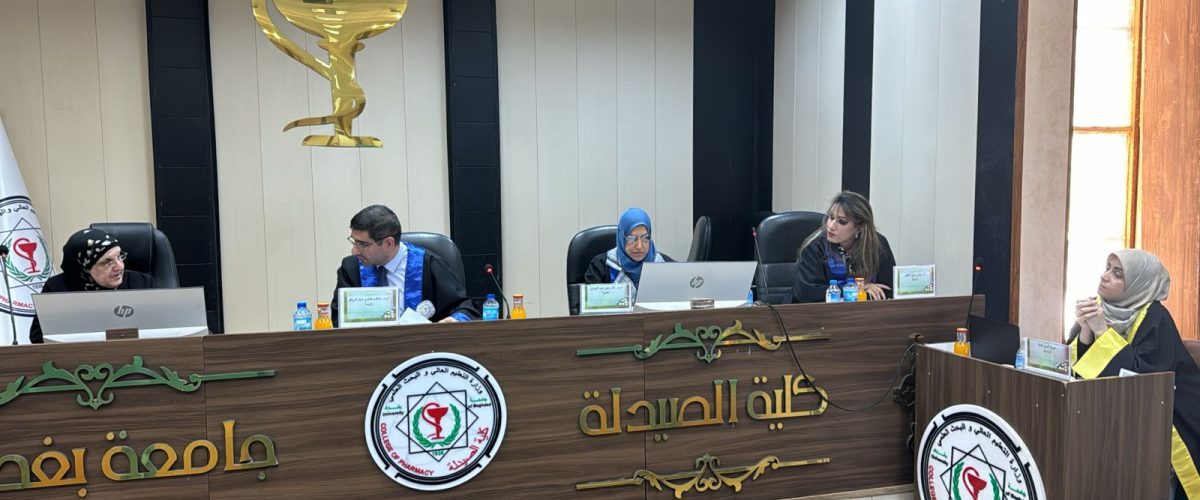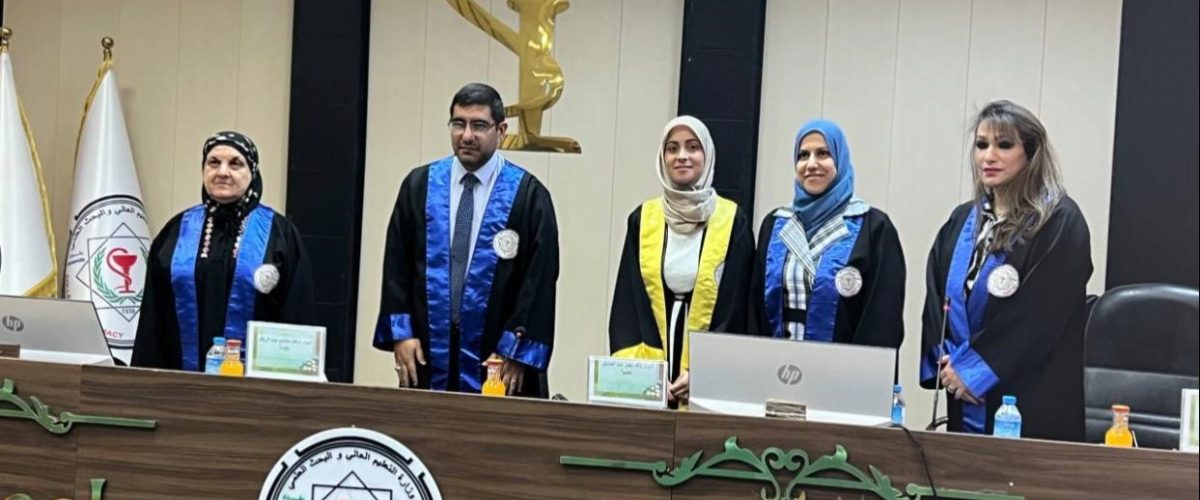The College of Pharmacy discussed the MSc thesis entitled “Phytochemical investigation of active constituent found in Crassula ovata family ( Crassulaceae) cultivated in Iraq and evaluation of its anticancer activity ” by the student hawraa kaream lafta and the supervisor, Professor Dr. Enas Jawad Kadhimes, at the Pharmacognosy and Medicinal Plants Department . The study aimed to identify the components of the jade plant grown in Iraq and evaluate its anti-esophageal cancer activity and the effect of combining bergenine with the drug docetaxel against prostate cancer. The study also focuses on extracting, dividing, isolating, purifying, identifying, and estimating the amount of biologically important components present in the plant. These components belong to three main groups, including alkaloids, phytosterols, and phenols . Plant material was extracted using a Soxhlet apparatus after defatting with n-hexane for 72 hr. and replacement of solvent for three times (each 24 hr.). The crude ethanolic extract then was fractionated using solvents of different polarity. The extracts were then subjected to preliminary phytochemical screening, TLC, and HPLC to detect various chemical constituents. Active components were isolated using preparative TLC and characterized using TLC, FTIR, and LC-MS and assess the anticancer activity of n-hexane fraction using the MTT assay on the KYSE-30 cell line. The second part of the research is s combination between bergenin compound and docetaxel against prostatic cancer cell line PC-3. Phytochemical analysis revealed the presence of alkaloids, phenolic compound like flavonoid and phytosterol in crassula ovata. Six compounds were isolated and identified: bergenin, Gallic acid, and kaempferol, phytosterol, lutein and tetrahydroprotoberberine alkaloid. The result showed that there is a distinct ability of the Crassula ovata to suppress the growth of cancer cells in concentration depend manner. This study, which is the first study on the jade plant grown in Iraq, shows the presence of various bioactive compounds such as the bergenin compound, which showed a synergistic effect of docetaxel against prostate cancer, and highlights the potential of the hexane fraction as an anti-esophageal cancer agent. The study recommended that further studies are required to identify other compounds that are still not identified in this plant. In vivo animal model studies are required for the evaluation of the anti-cancer effect of plant extracts on esophageal cancer and biotechnology technique such as plant tissue culture may tend to increase the concentration of active constituents




